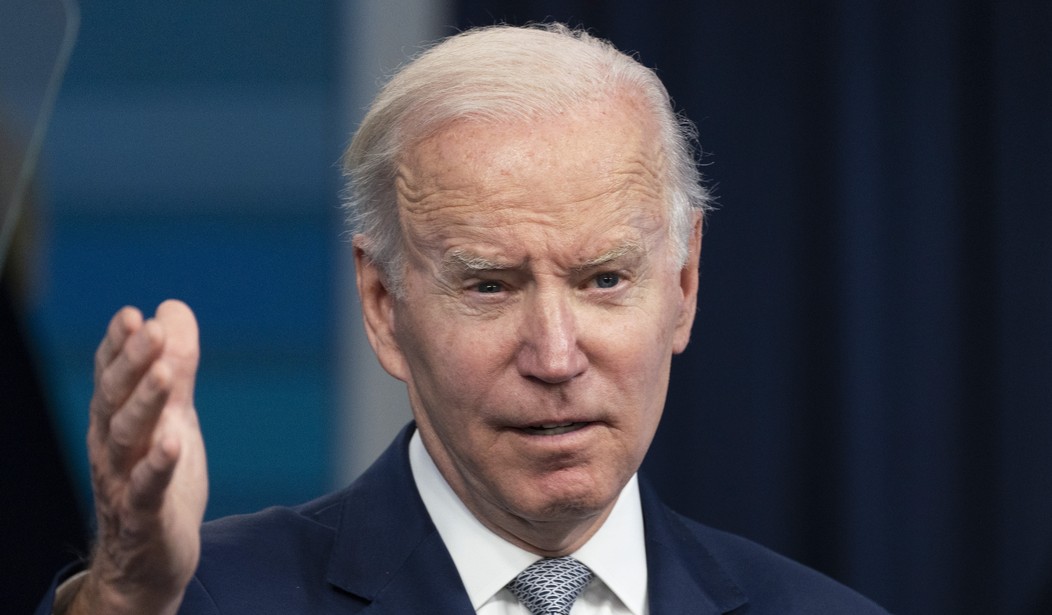Reuters? Up until a month ago, the Reuters tracking poll existed on the other end of the outlier spectrum. At that point, Joe Biden’s approval gap in the Reuters survey was still the negative single digits while almost every other pollster had Biden deep into double digits.
Not any longer. Yesterday’s iteration puts Biden at 36/58, both new records for Biden in the polling series, and the gap of -22 at near the largest tracked by RealClearPolitics. They offer a succinct review of the results:
U.S. President Joe Biden’s public approval rating fell for a fourth straight week to 36% matching its lowest level last seen in late May, according to a Reuters/Ipsos opinion poll completed on Wednesday. The president’s approval rating has stayed below 50% since August, a warning sign that his Democratic Party could lose control of at least one chamber of the U.S. Congress in the Nov. 8 midterm elections. Thirty-four percent of Americans say the economy is the most important issue currently facing the United States. Biden has been plagued by 40-year-highs in inflation, with Russia’s invasion of Ukraine restricting global fuel supply and supply chains still constrained by the COVID-19 pandemic. Among his own party, Biden’s approval rating remains largely unchanged since last week – at 73% compared to 74% on June 15. In August, 85% of Democrats approved of Biden’s performance. But among Republicans, Biden’s rating slipped to 7% compared to 11% on June 15. Only 18% of Americans think the country is headed in the right direction.
Biden did hit 36/59 in a late-May iteration of the survey, but then bounced up the next week to 42/52. It seemed at the time that Reuters had an outlier response, but instead it appears to have only foreshadowed the trendline. Since that snapback, Biden has lost twelve points in the gap over the last three weeks:

The demos here look bad as well. Reuters doesn’t break out ethnic demos except to denote white and “non-white” voters, but he’s now falling underwater among the latter, 43/49. Biden now trails among urban voters, his party’s power core, 45/46, while he’s getting crushed in the suburbs 37/60. The gender-gap on which Democrats rely has almost entirely disappeared, with Biden’s job approval among men (39/59) about the same as it is among women (34/57), even after nearly two months of stoking the flames of Roe over the Supreme Court leak in early May.
Perhaps worse than the approval ratings, however, are the results in this poll on the issues that voters will prioritize in November. What among these will Democrats be able to discuss while Biden’s in charge?
- Economy: 34% say it’s the most important issue
- Crime: 10%
- Immigration: 6%
Those are also the top three issues for Democratic voters, too. Only 8% of voters in Joe Biden’s party think the environment is the top concern, and only 4% say health care (another 3% say “public health’). That may be why Democrats like Elissa Slotkin are suddenly looking at potential defeat in what seemed to be safe districts, as Politico notes this morning:
A new internal GOP poll found Rep. Elissa Slotkin (D-Mich.) locked in a tight race with her Republican challenger in her Lansing-based battleground, with the president’s approval underwater by 26 points. It’s just one survey, paid for by the Republican nominee, state Sen. Tom Barrett, and the National Republican Congressional Committee — but it’s emblematic of a larger problem for House Democrats in what appears to be a foreboding midterm environment. …
After redistricting, Biden would have narrowly carried Slotkin’s district in 2020 by less than 1 point. The survey, conducted in mid-June by the GOP polling outfit Cygnal, found that nearly 63 percent disapprove of Biden’s tenure, while only 36 percent approve.
The generic ballot is also a warning sign for Democrats. Voters favored a GOP candidate over a Democratic candidate by 11 points, 50 percent to 39 percent.
Slotkin performed better, though not better enough to take the lead: In a head-to-head matchup in the survey, she received 44 percent of the vote to Barrett’s 46 percent. Barrett, an Army veteran, was elected to the Michigan House in 2014. He jumped up to the state Senate in 2018.
Slotkin’s a rising star in an endangered district, though. As currently configured, MI-08 has an R+4 Cook index rating, and before redistricting Trump carried the district 50/49. Slotkin didn’t exactly overwhelm in her two victories either, knocking off incumbent Republican Mike Bishop 50.6/46.8 in the blue wave of 2018 and then holding off Paul Junge 50.9/47.3 in 2020 as an incumbent. I’m not sure how “foreboding” it is to see a Democratic incumbent in this cycle trailing by two points in an R+4 district or even one that might be even-up after redistricting. In that kind of environment, Slotkin appears to be doing pretty well, actually, even against a Republican with much lower name recognition.
Biden’s numbers, though, suggest that this poll may be overestimating both Slotkin’s strength and Democratic turnout in the fall. Republicans won’t win every race on the bubble, but they’re going to win most of them in this political and economic environment. And for that, Democrats have only themselves to blame for foisting an incompetent faux-centrist on America’s voters in 2020.








Join the conversation as a VIP Member